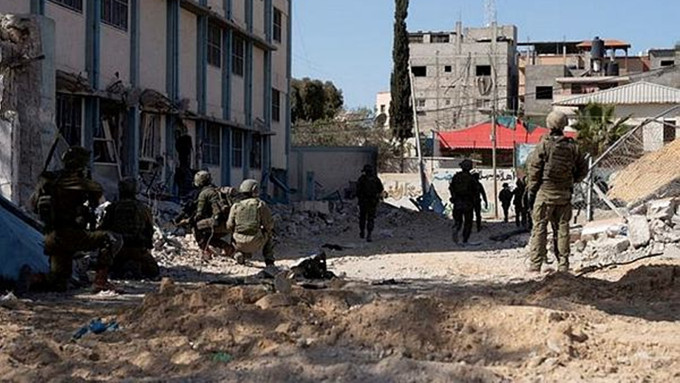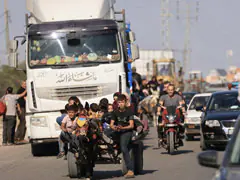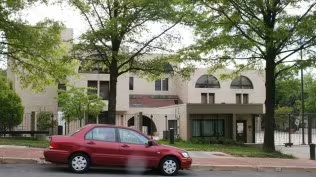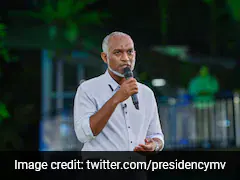For the first time, Israeli Prime Minister Benjamin Netanyahu has presented his Security Cabinet with a plan for managing the Gaza Strip after the end of the war against the militant Islamist group Hamas.
The Israel-Hamas war began after the Hamas terror attacks on Israel on October 7. According to Israeli figures, around 1,160 people were killed and some 250 hostages were taken to Gaza. Israel believes that around 130 hostages are still being held by Hamas, which is classified as a terrorist organisation by the United States, European Union, Israel and other states.

The Palestinian death toll since the start of the war has exceeded 29,500, with close to 70,000 wounded, according to the Hamas-run Gaza Health Ministry. Widespread destruction has led to dire humanitarian conditions.
Who will govern?
The loosely worded plan states that Gaza should be administered by “local officials” who have administrative experience, and would “not be identified with countries or entities that support terrorism and will not receive payment from them.”
The Palestinian Authority, which currently governs the occupied West Bank, is not mentioned in the paper, but also not explicitly ruled out.
 Displaced Palestinian girl, who fled her house due to Israeli strikes, feeds her brother at a tent camp, near the border with Egypt, in Rafah in the southern Gaza Strip, February 25, 2024. (Reuters)
Displaced Palestinian girl, who fled her house due to Israeli strikes, feeds her brother at a tent camp, near the border with Egypt, in Rafah in the southern Gaza Strip, February 25, 2024. (Reuters)
Israeli military to handle security
According to national dailies The Times of Israel and Haaretz, the Israeli military would take over security control of the entire Gaza Strip. This would mean the dismantling of all Hamas military structures and grant unlimited freedom for Israeli military operations.
Media reports also said Israel hopes a new road dividing the Gaza Strip into north and south would improve security control. But observers fear Israel could also use this road to prevent Palestinian refugees who fled to the south at the beginning of the war from returning to the north.
 The Nasser Hospital in Khan Younis, Gaza’s second-largest, stopped working last week after a week-long siege. (Israel Defense Forces/ Handout via Reuters)
The Nasser Hospital in Khan Younis, Gaza’s second-largest, stopped working last week after a week-long siege. (Israel Defense Forces/ Handout via Reuters)
Haaretz reported that the plan also includes the establishment of a buffer zone between Gaza and Israel, which would be controlled by the Israeli army, with no civilians allowed to return. Such a buffer zone would reduce the already cramped habitable area in the enclave.
Israel also wants to operate a “southern closure” on the border between Egypt and Gaza to curb smuggling into the area, The Times of Israel reported.
An end to the UNRWA?
Another postwar aim is the closure of the United Nations Relief and Works Agency for Palestine Refugees in the Near East (UNRWA), which Netanyahu has accused of being infiltrated by Hamas.
“Calls today by the Government of Israel for @UNRWA’s closure are not about the Agency’s neutrality.
They seek to eliminate @UNRWA’s role in protecting the rights of #PalestineRefugees and acting as a witness to their continuing plight.” @UNLazzarini ⬇️https://t.co/xBEP0JKXJq https://t.co/ptlAqC6cMx
— UNRWA (@UNRWA) February 23, 2024
He has alleged that several employees of the aid organisation were involved in the October 7 attacks. The UN has dismissed those in question and initiated internal investigations. Meanwhile, a number of countries, including the United States and Germany, have suspended their payments to UNRWA.
Far-right demands
Netanyahu did not accommodate demands made by far-right ministers in his cabinet. Among other things, they had called for Gaza to be used for Israeli settlers. Israeli Finance Minister Bezalel Smotrich and National Security Minister Itamar Ben Gvir had also called for the Palestinian population to be settled outside Gaza.
The prime minister had already rejected the idea to use the Gaza Strip for settlements in January. The plan was criticised by US Secretary of State Antony Blinken, who said that expanding settlements in Palestinian territories would prevent peace.
No two-state solution
Netanyahu continues to reject a two-state solution, despite urging from international supporters including the US. Washington has also backed a reorganised Palestinian Authority under President Mahmoud Abbas, who would be tasked with taking back the administration of Gaza.
A spokesperson for the Palestinian Authority rejected Netanyahu’s plan.
“Gaza will only be part of the independent Palestinian state with Jerusalem as its capital,” he said, according to the official Palestinian news agency Wafa.
“If the world wants security and stability in the region, it must end the Israeli occupation of Palestinian territories and recognise the independent Palestinian state with Jerusalem as its capital,” he added.
Disclaimer: The copyright of this article belongs to the original author. Reposting this article is solely for the purpose of information dissemination and does not constitute any investment advice. If there is any infringement, please contact us immediately. We will make corrections or deletions as necessary. Thank you.







